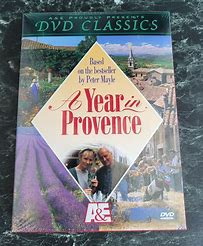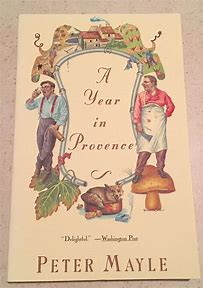Content Menu
● Social Customs: The Warmth of Community
● Attitudes Toward Time: A Slower Pace
● Culinary Traditions: A Passion for Food
● Language Barriers: Navigating Communication
● Bureaucratic Challenges: The French System
● Embracing Differences: A Journey of Discovery
● Conclusion
● Related Questions
>> 1. What inspired Peter Mayle to write *A Year in Provence*?
>> 2. How does Peter Mayle describe Provencal cuisine?
>> 3. What challenges did Mayle face while integrating into Provencal society?
>> 4. What role does humor play in *A Year in Provence*?
>> 5. How did living in Provence change Peter Mayle's perspective on life?
Peter Mayle's memoir, *A Year in Provence*, is a delightful exploration of the cultural contrasts between his British upbringing and the Provençal lifestyle he encounters after relocating to southern France. Through his humorous and insightful narrative, Mayle provides readers with a vivid account of the challenges and joys he experiences as he immerses himself in the local culture. This article delves into the significant cultural differences that Mayle faced during his year in Provence, highlighting aspects such as social customs, attitudes toward time, culinary traditions, and community interactions.

Social Customs: The Warmth of Community
One of the most striking cultural differences that Mayle notes is the warmth and openness of the Provençal community. In England, social interactions can often feel more reserved and formal. However, in Provence, Mayle discovers a culture that values hospitality and camaraderie. Neighbors greet each other with kisses on both cheeks, a gesture that may seem overly intimate to someone from a more reserved background. This physical expression of friendship reflects a deeper cultural appreciation for personal connections.
Mayle recounts numerous encounters with local residents who invite him into their homes for meals or gatherings. These experiences highlight the importance of community in Provençal life. The French have a strong tradition of communal dining, where meals are not just about sustenance but also about fostering relationships. In contrast to the often hurried and solitary meals common in British culture, Mayle finds that dining in Provence is an event that can last for hours, filled with laughter, conversation, and shared stories.
Attitudes Toward Time: A Slower Pace
Another significant cultural difference is the attitude toward time. In England, punctuality is often considered a virtue; being late can be seen as disrespectful. However, Mayle quickly learns that time operates differently in Provence. The locals have a more relaxed approach to schedules and deadlines. This can be frustrating for someone accustomed to a more structured lifestyle.
For instance, when waiting for a plumber to fix frozen pipes in his farmhouse, Mayle notes the leisurely pace at which the work is completed. This slower rhythm of life can initially be exasperating but ultimately offers a refreshing perspective on what it means to live well. Mayle begins to appreciate the beauty of taking time to enjoy life's simple pleasures rather than rushing through them.
Culinary Traditions: A Passion for Food
Food plays a central role in *A Year in Provence*, serving as both a cultural touchstone and a source of joy for Mayle. He discovers that the French take immense pride in their culinary traditions, viewing food not merely as fuel but as an art form to be celebrated. The passion for quality ingredients and meticulous preparation contrasts sharply with the more utilitarian approach to food that he experienced in England.
Mayle's descriptions of meals are rich and evocative, capturing the essence of Provencal cuisine. He recalls his first meal in Provence as an unforgettable experience filled with flavors and textures that he had never encountered before. The emphasis on fresh produce from local markets, traditional recipes passed down through generations, and the communal aspect of dining all contribute to a culinary culture that values enjoyment over convenience.
This love for food extends beyond just eating; it encompasses an entire lifestyle centered around gastronomy. Festivals celebrating local produce, such as truffles or olives, are common in Provence and reflect the community's deep connection to their land and its bounty.

Language Barriers: Navigating Communication
Language presents another layer of cultural difference for Mayle as he navigates life in Provence. While he speaks some French, he quickly realizes that understanding local dialects can be challenging. The regional accent can be thick, making it difficult for him to follow conversations at social gatherings or markets.
However, this language barrier also leads to humorous situations that enrich his experience. Miscommunications become sources of laughter rather than frustration, allowing him to bond with locals over shared moments of confusion. Through these interactions, Mayle learns that communication extends beyond words; gestures, expressions, and shared experiences often convey meaning just as effectively.
Bureaucratic Challenges: The French System
Mayle also encounters the complexities of French bureaucracy when trying to settle into his new home. He finds himself grappling with paperwork and regulations that seem unnecessarily convoluted compared to what he was used to in England. This experience highlights another cultural difference: the perception of efficiency versus thoroughness.
In England, there is often an emphasis on streamlining processes for efficiency's sake. In contrast, Mayle discovers that the French approach tends to favor thoroughness and attention to detail—even if it means taking longer to achieve results. This cultural divergence can lead to moments of frustration but also offers valuable lessons about patience and persistence.
Embracing Differences: A Journey of Discovery
Throughout *A Year in Provence*, Peter Mayle's journey is not just about adapting to a new environment but also about embracing these cultural differences. As he immerses himself in Provençal life—learning from locals, savoring exquisite meals, and participating in community events—he gains insights into his own identity and values.
Mayle's humorous observations serve as a reminder that while cultural differences may initially seem daunting or perplexing, they also provide opportunities for growth and understanding. By stepping outside his comfort zone and engaging with another way of life, he discovers new perspectives on happiness, community, and what it means to truly live.
Conclusion
In conclusion, Peter Mayle's *A Year in Provence* offers readers an engaging exploration of cultural differences between British and Provençal lifestyles. Through his experiences with social customs, attitudes toward time, culinary traditions, language barriers, and bureaucratic challenges, Mayle illustrates how embracing these differences can lead to personal growth and deeper connections with others. His memoir serves as an invitation for readers to appreciate the beauty found within diverse cultures while reflecting on their own lives.

Related Questions
1. What inspired Peter Mayle to write *A Year in Provence*?
Peter Mayle was inspired by his experiences living in Provence after moving there from England; he found himself captivated by the local culture and daily life.
2. How does Peter Mayle describe Provencal cuisine?
He describes it as rich and vibrant, emphasizing fresh ingredients and communal meals filled with flavor and tradition.
3. What challenges did Mayle face while integrating into Provencal society?
He faced challenges such as language barriers, navigating bureaucracy, and adjusting to different social customs compared to those in England.
4. What role does humor play in *A Year in Provence*?
Humor plays a significant role as Mayle recounts amusing anecdotes about his misadventures while adapting to life in a new culture.
5. How did living in Provence change Peter Mayle's perspective on life?
Living in Provence helped him appreciate a slower pace of life focused on enjoyment rather than efficiency while fostering deeper connections within his community.
































